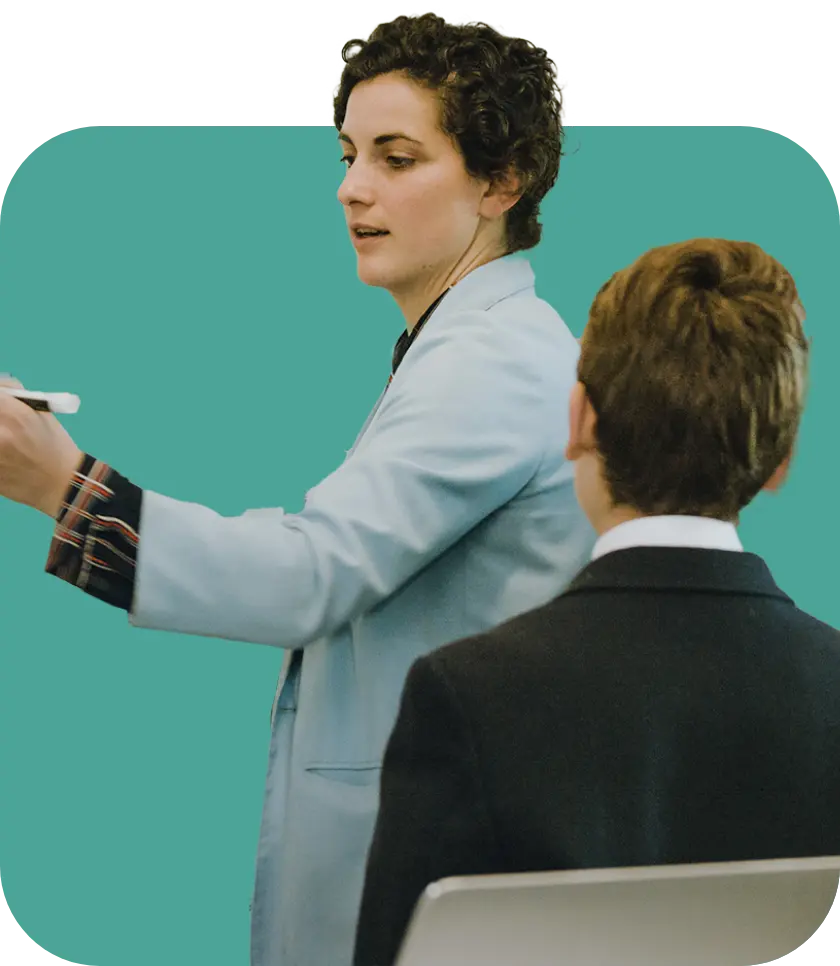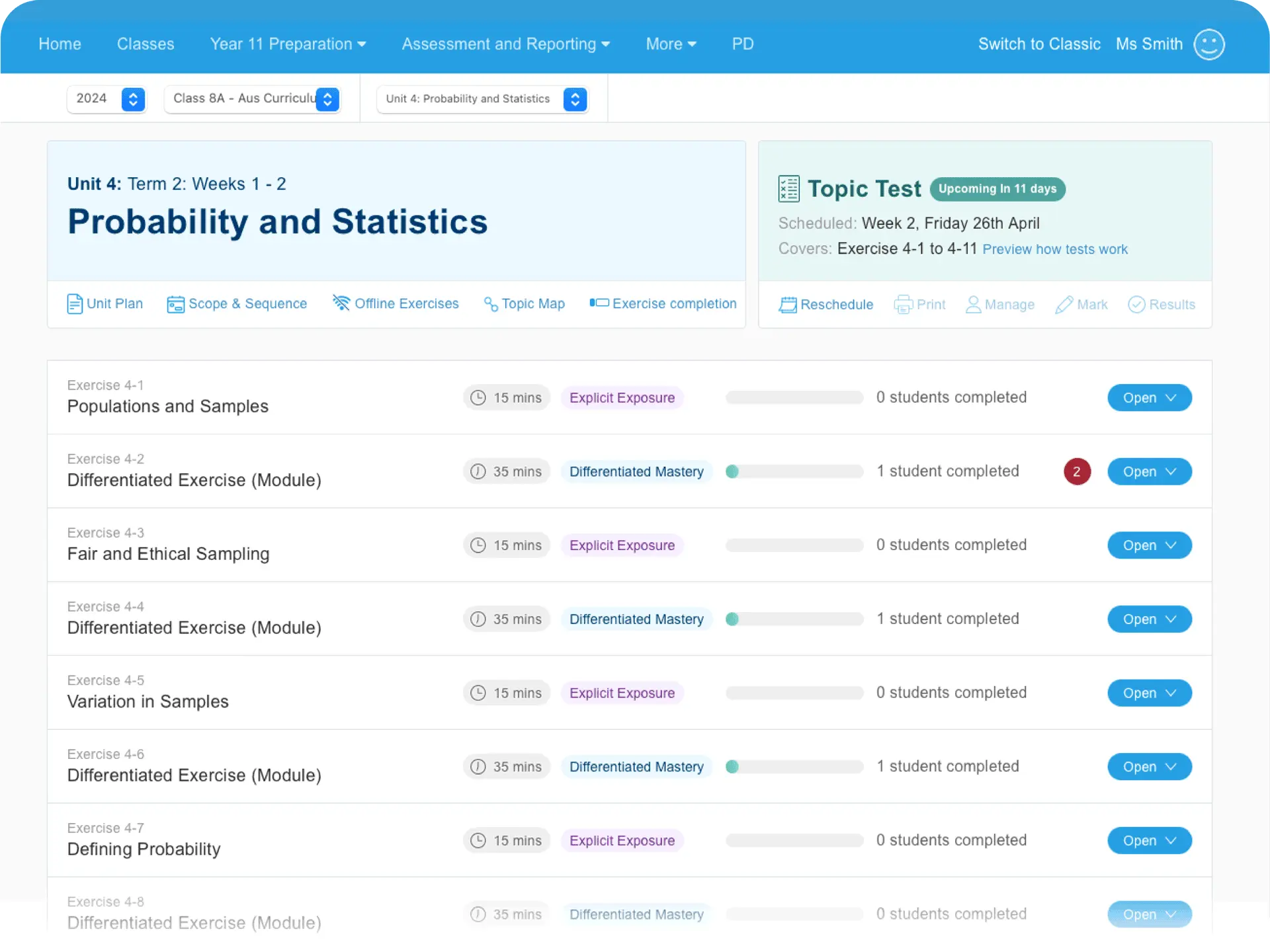At Maths Pathway, we do things a little differently
We don’t tell teachers how to teach, or claim to be a magic solution. In fact, we are teachers and we’ve spent the last 10 years working with like-minded educators to build the tools they want and need for effective explicit teaching and differentiation in their classrooms.

We know that when teachers have the right tools, amazing student growth happens. That’s why we’re committed to always placing teachers at the forefront, addressing their daily challenges head-on, and making their lives easier with our innovative approach to teaching maths.
The result is an effective, easy-to-use program that puts administration in the background and brings teaching to the front, where it belongs.
The best part
Teachers love our model and students thrive when they use it. To us, that’s what matters and that’s what we will continue to strive towards every day – better support for teachers and outcomes for students.

Our vision
We envision a world where every student experiences growth and success in maths. No matter their current level, or their background. We believe the way to achieve this is to support teachers to have an even greater impact in the classroom and that’s exactly what our model does.
From our co-founder
“When I walk through the world, I see things differently. I notice numbers, and the way they create patterns and relationships. I search for the connections between the abstract and the concrete. I compute 90% confidence intervals for the quality of my coffee. When my kids and I check our carton for broken eggs, it becomes a counting exercise. When I go to a cafe with my daughter, it becomes an exploration of the difference between one cup and zero cups, and whether zero cups is equivalent to zero pastries. But I’m not trying to do maths. Maths is just part of my identity.”
I didn’t use to be like this. I used to be like most of the population: numbers were vaguely threatening, ‘maths’ was something you used in school but probably never anywhere else, and statistics were a tool used by politicians to con the populace.
My mathematical ‘awakening’ came when I was nineteen years old and studying philosophy. While exploring the very real, human experience of the passing of time, I realised that this supposedly vague concept could be described, evaluated and tested not just in traditional language, but in a uniquely expressive and symbolic language – mathematics. Imagine: you can actually write equations that explain why time goes forward, and not backwards!
To be clear, I didn’t have the mathematical knowledge to be able to do that at nineteen. But the very realisation that it might be possible changed my mindset about what mathematics was. I came to believe that mathematics provides a beautiful and elegant way of thinking about the world, that my days are richer and more interesting for having this additional lens on the world, and that instilling a love of mathematics in all of us is valuable in and of itself.
Most of the kids in our classrooms don’t believe those things. Hell, most of the adults in our world don’t believe them. “I’m not a maths person”. “Maths is mostly for boys”. “I was never good at maths”. “Maths doesn’t make sense”.
Maths Pathway rages against this every day. We came into existence to rage against it – and yes, I’m using the word “rage” intentionally. How as educators, politicians, philanthropists and society-at-large can we accept this level of discomfort, of anxiety, of sheer terror when it comes to maths? By far the majority of our children finish school never really understanding maths; never seeing what is beautiful about it, what is exciting about it, what is powerful about it. The mission of the teachers, students, parents, schools and partners who are part of the Maths Pathway community is to ensure that the next generation sees all of that. We’re going to ensure they walk into maths class and feel like this is the best part of the day.
What will success look like? Nothing less than a world that, for the first time in human history, understands and is entirely comfortable with mathematics. It will be a world that most of us won’t even recognise – a population that can’t be manipulated by ‘statistics’, that can solve even the most intractable social and scientific problems, whose interactions with each other are rich, deep and thoughtful.
Richard Wilson
Co-founder and Chief Visionary
Maths Pathway free trial
Ready to explore Maths Pathway for yourself? Get started with a free trial today!

